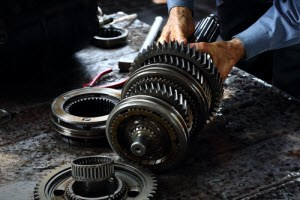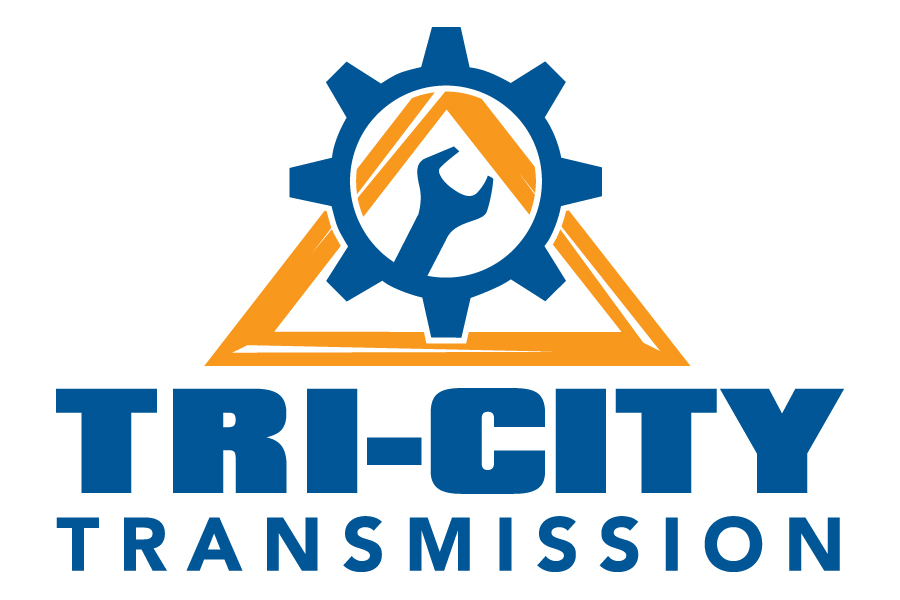
Caveat #1 - Transmissions are Often Serviced Wrong
These would be: Transmission services that utilize generic one size fits all fluids, transmission services where improper fluid levels are set (this can be complicated on the modern car), transmission services where the wrong filter was used (very subtle differences in filters that novices commonly miss), transmission services where double gasketing on the filter O-ring takes place, transmission services where funky additives or detergents are used, ....... and so on, help to solidify the confusion around transmission service. In some of these cases of improper service, the car never leaves the shop working. But, in most of these instances, the cars drive away from the shop appearing to be fine after the service. Not always do symptoms appear right away. In these cases, it takes a while for a pattern of symptoms to develop and become recognizable and definable. A slow cook, how do you boil a frog? Very slowly. Since we custom repair transmissions, we autopsy every one of the transmissions we repair.
From this extensive experience, we know how and why the transmissions fail. Improper service is toward the top of the list as a cause of premature transmission failure. I often tell people, "a bad transmission service is way worse than no transmission service at all." Improper transmission service continues to build a foundation for the legend that transmission services kill transmissions - The reality, good transmission service avoids premature transmission replacement and assures the transmission is doing everything it was designed to do at its full capacity.
Caveat #2 - A Transmission Service to Fix a Problem
People think they might have a transmission problem, so they react with getting a voluntary transmission service. They often don't communicate their transmission concerns with the shop. Odds are, the transmission probably already has an issue. Inevitably, servicing a transmission that is already having an issue can kick it over the edge, and it may fail. Again, this adds to the wives' tales and industry legends. The automotive generalist sees a transmission fail after his service and becomes skeptical about transmission service and starts recommending against it. He is sensitive about the topic since the customer blamed him for the failure of an already failing transmission.
So… Should You Service your Transmission?
The simple answer is YES, you absolutely should service your transmission!!
The exceptions:
- Don't work with an under qualified technician. You have to be working with a qualified transmission technician, otherwise, don't bother servicing your transmission. Just accept the fact you will buy, repair or have a transmission that performs sub-par prematurely as a result of lack of maintenance. Reliability, consistency, fuel economy and pride of ownership decreases when the transmission is not maintained.
- Don't service a transmission to fix a problem! You may make it worse! Transmissions on very few occasions are ever fixed with a transmission service. Some generalist shops that don't know transmissions will recommend starting there to see if it helps. Don't!! Don’t use transmission service as a guess or a diagnostic aid. There are some exceptions, but only a qualified transmission technician will know when that is. I have seen consumers take a small problem and make it worse by self-diagnosis and getting a transmission service. Servicing a transmission attempting to fix a problem in most cases is a waste of money and makes our job harder when the vehicle inevitably ends up with us for diagnostic and repair. Fluid condition helps us diagnose a transmission. If you replace it before we ever see it, we are missing some of the key evidence we need to properly diagnose your transmission.
- Don't use substitute transmission fluids to save money on a transmission service. Transmissions are way more expensive then the money you will save using the wrong fluid. It's a big investment. Service it correctly!
- Don't use substitute transmission fluids because the shop says it's a good idea. It is a tremendous amount of work to stock the right transmission fluid for the right transmission. We stock over 40 transmission fluids for all makes and models. Big name brand oil manufacturers such as Valvoline want this business, so they promote that they have a "fits all fluid" that works in everything. It's a solution for the auto shop to minimize what they have to stock. It is not a solution for the customer. The oil isn't necessarily cheaper -- and in some cases – it is more expensive than using the right stuff. I relate it to blood. I have O negative and apparently, they can't use my fluid (blood) in an A positive transfusion. In this analogy, they are both technically blood, but we know better. Transmission fluid is the life blood of the transmission.
Why You Need A Transmission Service
The industry replaces transmissions 4-1 over engines. Most folks are religious about engine oil changes but the very active and overworked transmission often gets overlooked. Transmissions should be serviced every 50,000 miles at a minimum, regardless of manufacturer recommendations. I will explain that more in transmission service, Part 2 - Why manufacturer recommendations aren't necessarily in your best interest.
Why Some Automotive Generalist Recommend Against Transmission Service
A good majority of automotive generalists don't understand transmissions so they don't necessarily give good advice when it comes to transmissions. I understand this first hand. I originally started my career as an automotive generalist. I realize now, with over a decade as a transmission technician, I was passing out well intentioned bad advice. I did not know what I did not know. At that time, as a generalist, we shied away from transmission service for all the reason listed above. Transmissions were just a black box. As a generalist, I wasn't aware of all the cool things done by honest transmission people. For me, it has been eye opening to see the other side of the curtain.
Tri-City Transmission, Transmission Service Process
Since 1972, a good majority of our business is focused on the specialty of transmissions. We live, eat and breathe transmissions. We are passionate about a transmission service and saving you from ever having to buy a transmission. Our transmission service is anything but a one size fits all transmission service that most in our industry recommends. The boiler plate transmission service is a good way to wreck a perfectly good transmission. In some of these instances, the transmissions are over serviced, but the customer is definitely under served.
Our transmission service process begins with a thorough interview about your vehicle & the transmission, so we know what type of transmission service appointment you will need. From there, when we pull your vehicle in the bay, we perform a deep scan of the vehicle for any transmission diagnostic trouble codes that might be hiding out in the system. A road test is then performed where our transmission technician analyzes relative transmission pressures, shifts pattern, shift feel, torque converter operation and overall vehicle attributes. Our technician as needed will often analyze streaming transmission computer data during the road test looking for consistencies and inconsistencies. Our technician will specifically look at the data for clutch apply times. Also, he will look at the values for transmission adaptive pressure (TAPs) adjustments in the vehicles computer to see if there are any spots of concern in the transmission.
From there, the technician will do a visual inspection of the transmission itself, checking for leaks, linkage adjustments and other supporting components to the transmission. He will smell test and color test the transmission fluid. If the fluid looks questionable or abnormal, in some cases he will take a fluid sample and perform chemical analysis. After all of this is done, the technician will make a recommendation of what transmission service is needed. On occasion, we don't service the transmission if there is a big problem looming. We call and advise the customer of the prognosis of the transmission and different scenarios for correction. Our service is not a "quickie lube transmission service" or a well marketed "car wash transmission service", it is performed by a certified transmission technician. In most cases, you drop the vehicle off in the morning and pick it up that evening.
We realize that often times people are feeling a glitch or idiosyncrasies so they schedule a transmission service appointment. If you convey these intermittent and often subtle idiosyncrasies that we might otherwise not pick up on, we can often fix minor issues for pennies and save you from ever having to buy a transmission.
To schedule a transmission service call one of our service consultants.
Listen to Dave Riccio of Tri-City Transmission talk about transmission maintenance on Bumper to Bumper Radio:
Example of Transmission Service Gone Wrong
Do I Need a Transmission Service? | Should I Service my Car's Transmission?



